Poultry egg prices drop sharply, farmers suffer heavy losses
(Baonghean.vn) - Since mid-February until now, the price of chicken eggs has been continuously decreasing. In particular, in early March, the price of eggs dropped sharply, causing losses for egg-laying chicken farmers.
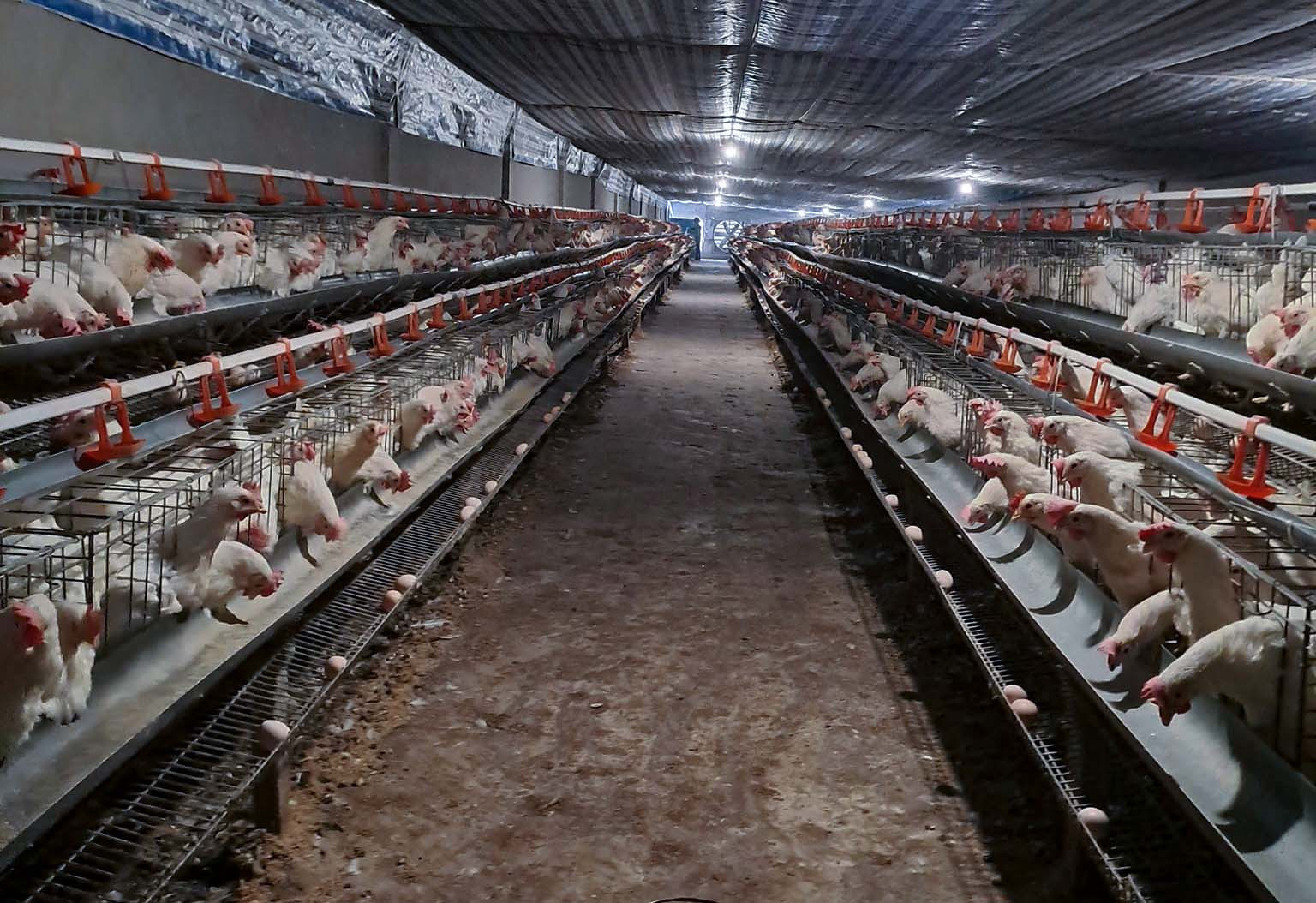
Egg prices fall sharply
With a scale of over 17,000 laying hens, every day, Mr. Tran Xuan Son's farm in Nghia Hung commune (Nghia Dan) collects 13,000-15,000 eggs to supply the market. Since Tet until now, egg prices have dropped sharply, causing him heavy losses.
“Egg prices have dropped sharply, on average each egg costs about 2,100 VND, while the selling price is only 1,700-1,800 VND/egg, each egg is a loss of 400 VND,” said Mr. Son. According to Mr. Son, egg prices must be at 2,200 VND or higher for farmers to make a profit.
For more than a month now, the family of Mrs. Pham Thi An - owner of a 3,500-chicken farm in Dien Trung commune (Dien Chau) has also been in a situation of heavy losses due to the sharp drop in poultry egg prices. On average, each day, with 2,500 eggs sold to the market, she has to compensate for a loss of more than 1 million VND, and that does not include labor costs because there are 2 workers in the house taking care of the chickens.
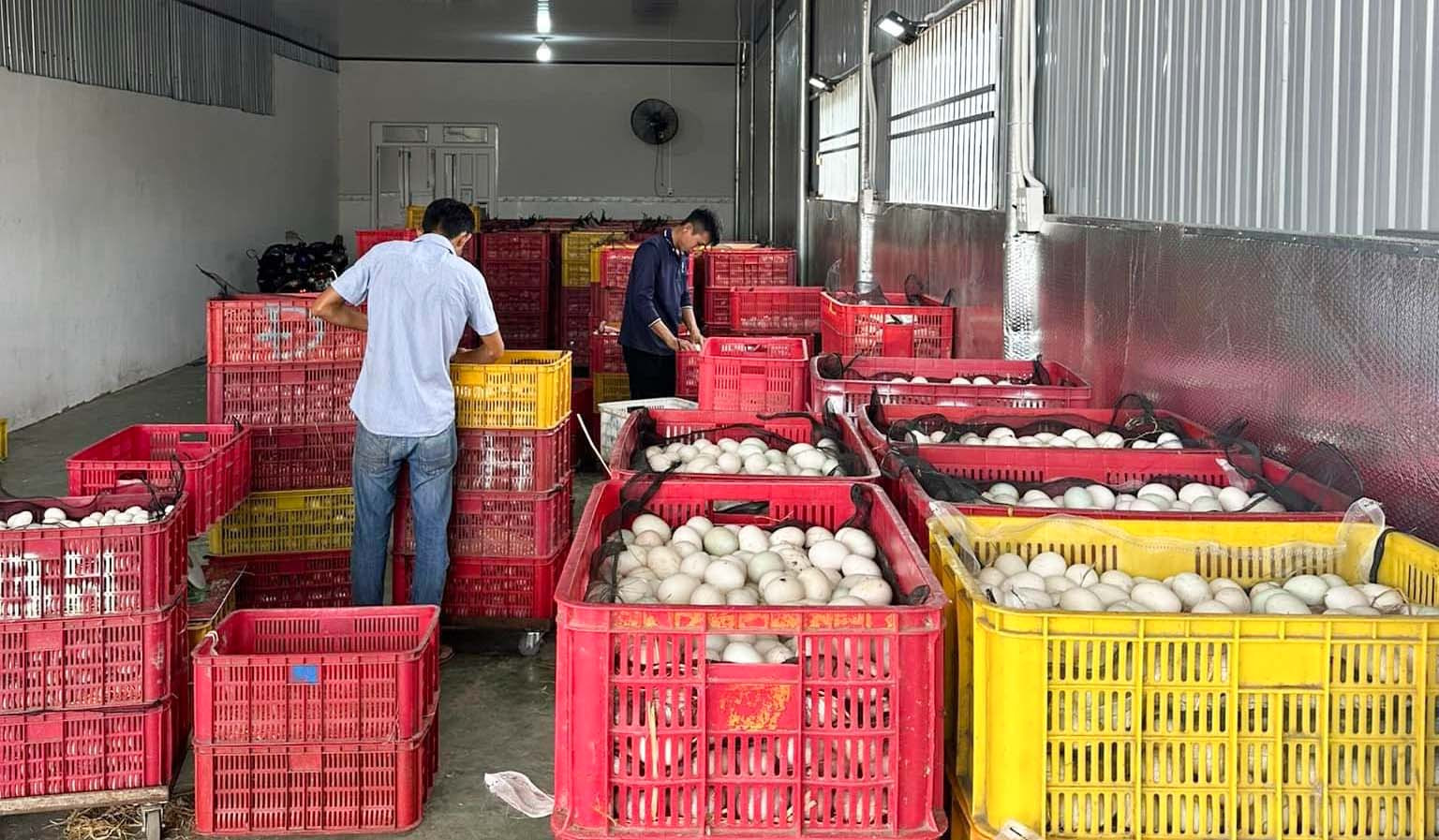
Although it has linked up with 22 stores, supermarket chains and schools to proactively manage output, 50% of the egg output of Thang Linh black chicken farm in Nghi Van commune (Nghi Loc) still depends on traditional markets and retail. Therefore, when the market fluctuates and egg prices drop sharply, 50% of the eggs consumed in the market still have to bear a loss of 1,100 VND/egg.
Mr. Nguyen Huu Thang - the farm owner said: "For 50% of the eggs (5,000 eggs/day) that are linked to consumption, the price is stable. The remaining 50% are sold at a loss. Fortunately, the number of eggs sold through links has offset the loss of the remaining eggs."
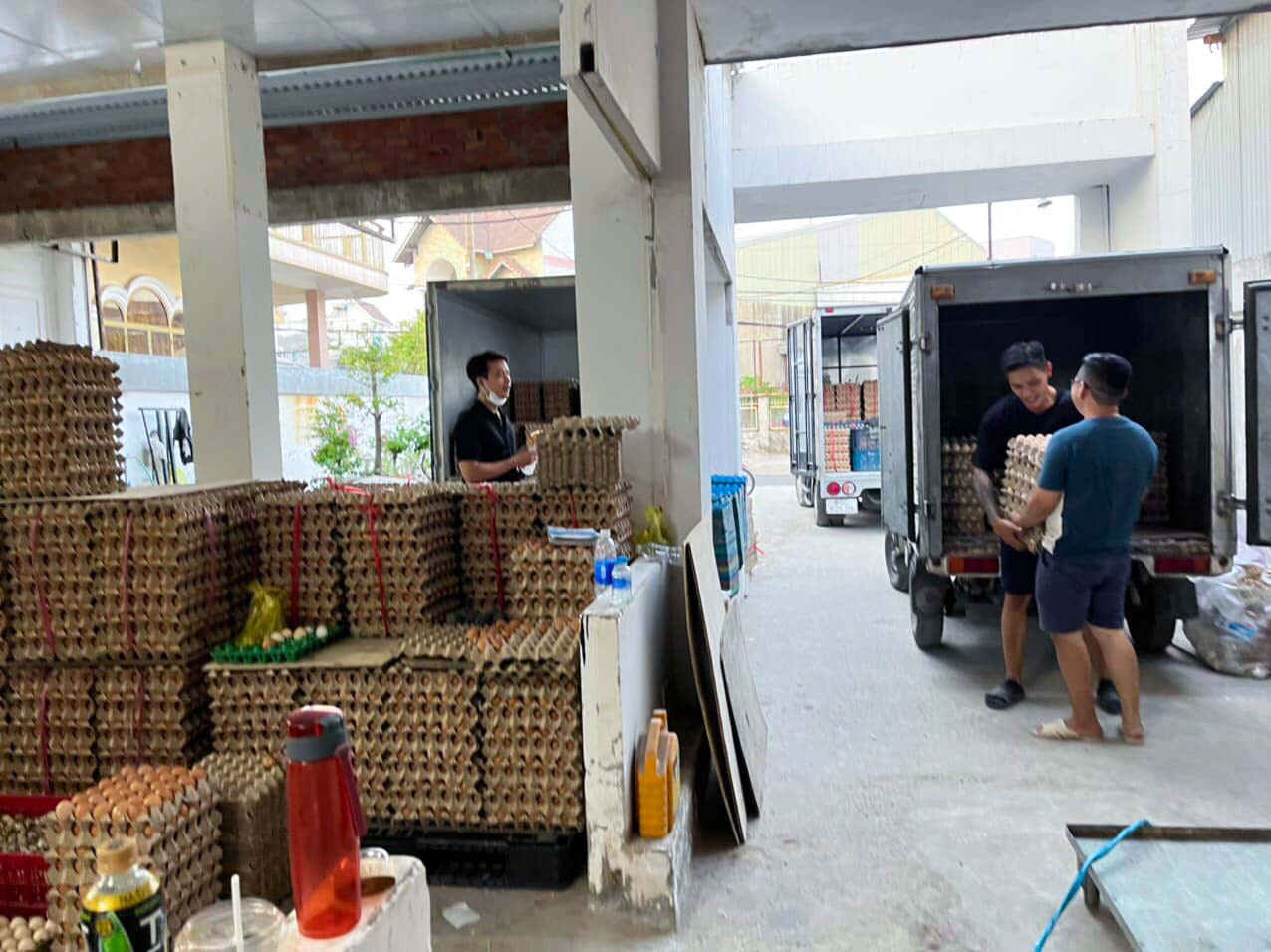
Not only did egg prices drop sharply, but the consumption market also stagnated. Meanwhile, the humid weather made it impossible to preserve eggs for long, so egg-laying hen farmers were "sitting on fire". In addition to importing to collective kitchens, agents, grocery stores, and wholesale markets, many farms had to mobilize workers to sell retail.
"In the markets, eggs are also difficult to sell even though the price has dropped sharply, because the market serves restaurants, pubs and family meals. At this time, restaurants are deserted and have few customers, so they only buy in moderation; the cool weather is favorable for egg-laying chickens, so many families raise a few egg-laying chickens to be self-sufficient in egg supply. Therefore, the purchasing power of poultry eggs has decreased sharply," said Ms. Dinh Thi Hong Loan - owner of a poultry egg stall at Vinh market.
Before Tet, the price of chicken eggs was still at 2,500-2,700 VND/egg (depending on the type), but after Tet, the price of eggs continuously decreased. Currently, white chicken eggs are 1,700 VND/egg and red chicken eggs are 1,500 VND/egg, which means each egg has decreased by 700-1,000 VND.
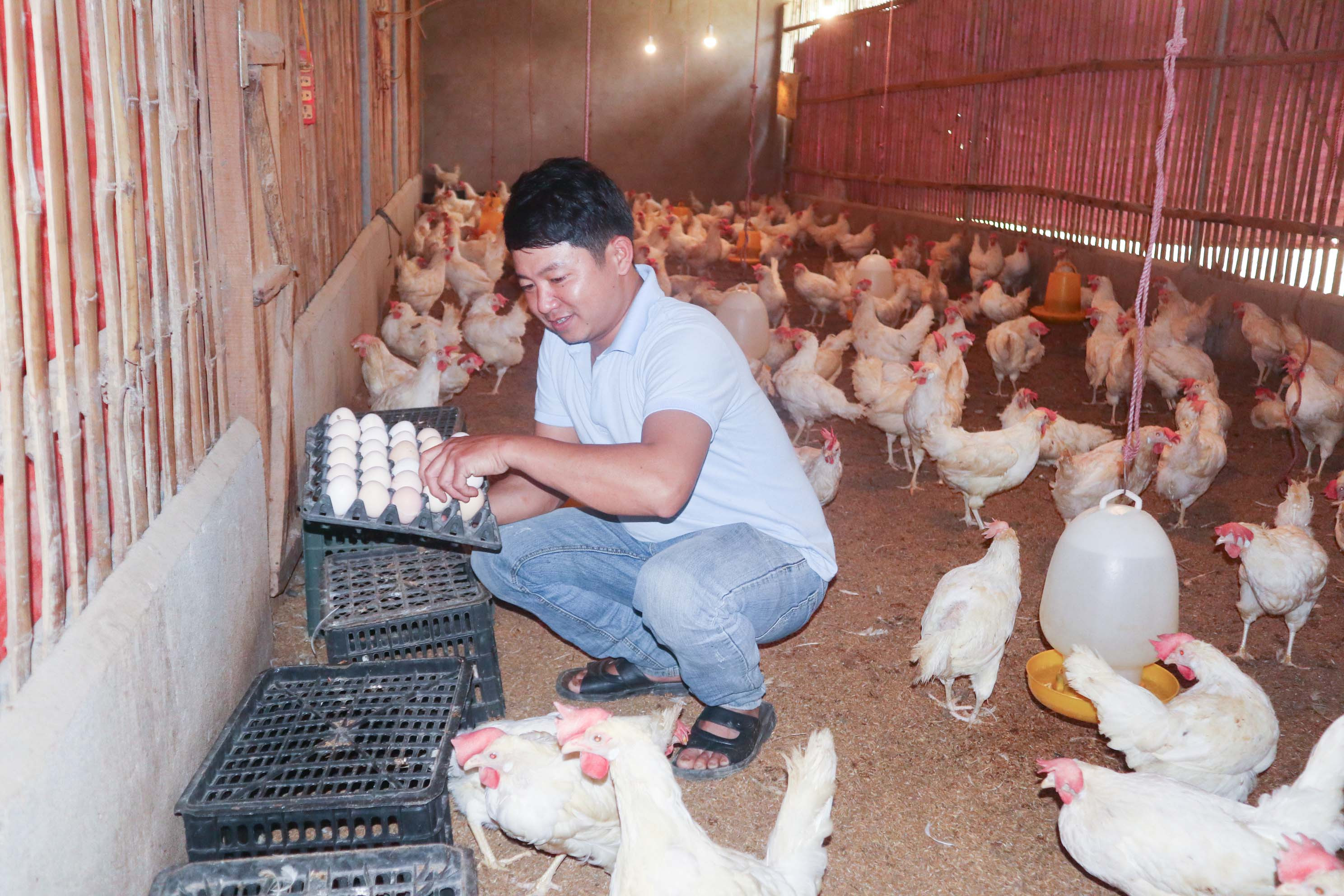
What is the cause?
The reason for the sharp drop in poultry egg prices at this time is that after the Lunar New Year holiday, companies are not operating at full capacity, so the number of workers is small, and consumption in collective kitchens has sharply decreased.
Second, poultry eggs are mainly supplied to confectionery companies. After Tet, companies have not yet accelerated production but are mainly selling inventory.
Third, people still have unused Tet food, so the demand for eggs has decreased.
Fourth, starting from the 25th of Tet, eggs began to pile up, so the amount of eggs in the farms was too large, while chickens still laid eggs every day, so "supply" exceeded "demand".
Along with that, the humid weather phenomenon, most small farms do not have cold storage so they have to sell massively... "Eggs are very difficult to preserve. Especially in humid weather like now, they are very easy to spoil. Therefore, if they are to be stored, they must have a special cold storage for eggs. However, not every farm has a cold storage", said Mr. Tran Xuan Son.
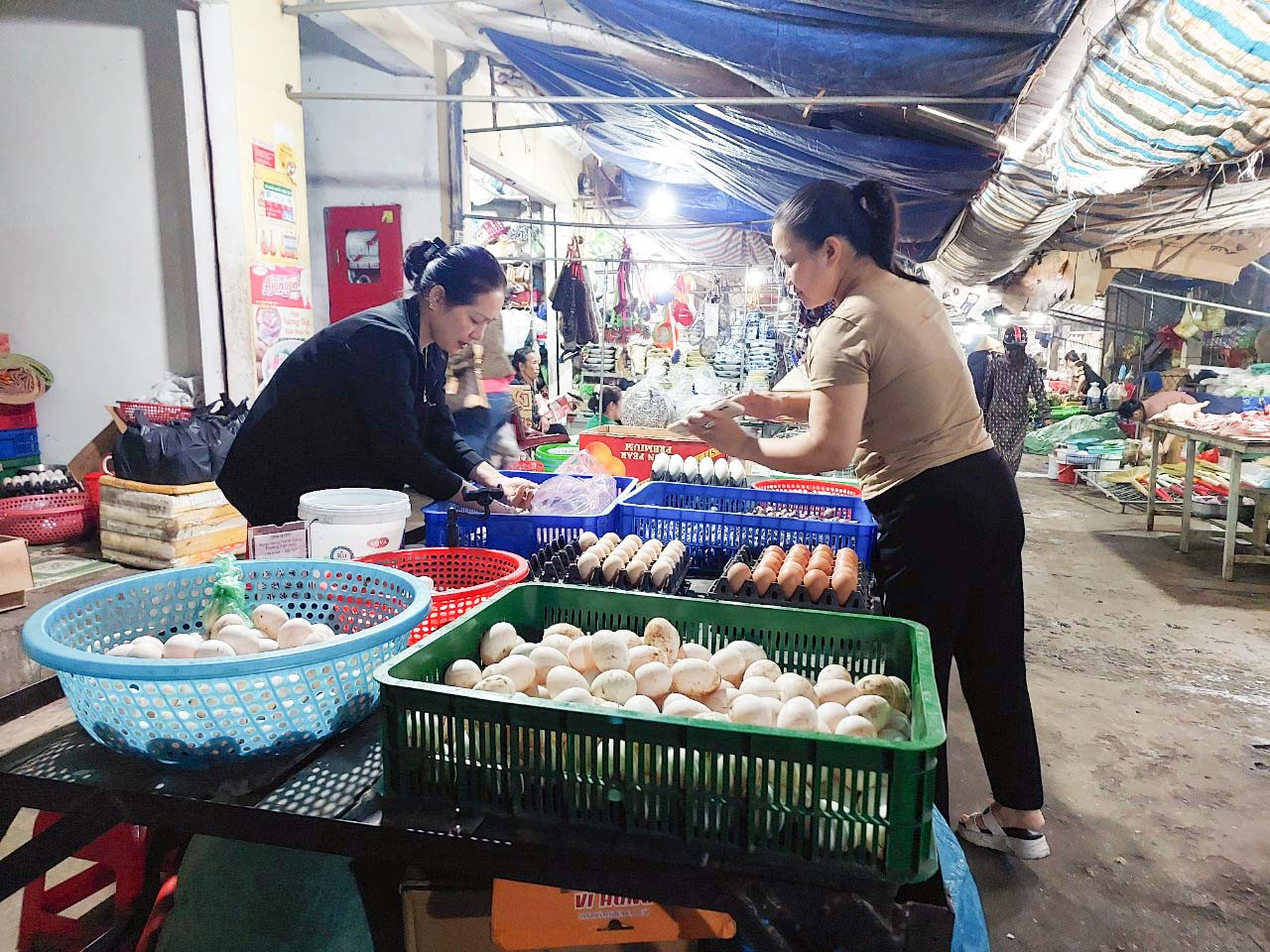
“After Tet, egg prices usually decrease and purchasing power is also more limited. However, this time, egg prices have decreased quite deeply while input costs have increased, so many farms have faced losses. Some farms have been forced to reduce their herds to reduce costs, reduce labor and “cut losses”, said Mr. Dau Ngoc Hoa - Director of Dien Trung Livestock Cooperative (Dien Chau).
Due to the unusual weather and fluctuations in the consumer market, the poultry industry (including egg products) faces many risks. Therefore, for livestock in general and poultry in particular to develop stably, farmers need to invest synchronously from building barns to storage warehouses, building a stable production - consumption chain. This not only controls diseases during the breeding process but also helps farms minimize the unstable impact of the market...
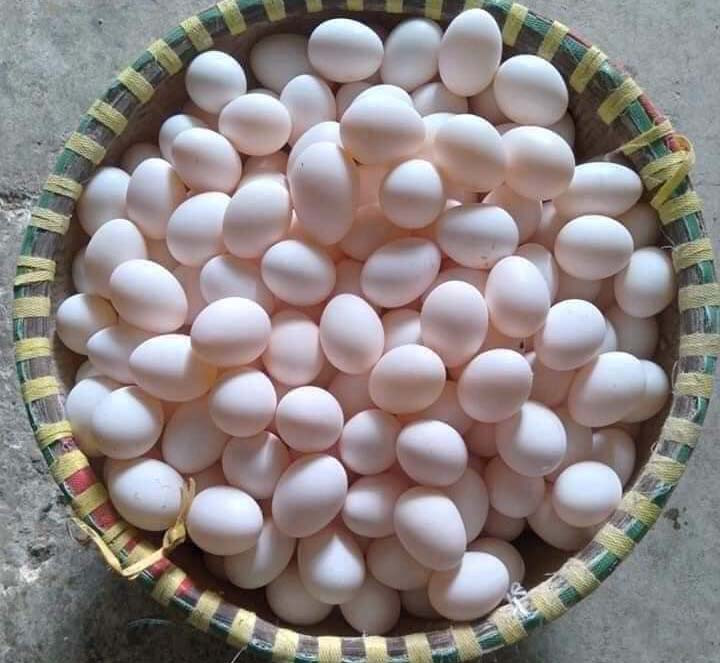
At the same time, localities need to build linkage chains in livestock farming to reduce input costs; support cooperatives and people to promote trade promotion activities, sign contracts to consume poultry egg products with businesses, convenience stores, collective kitchens...
